ADHD
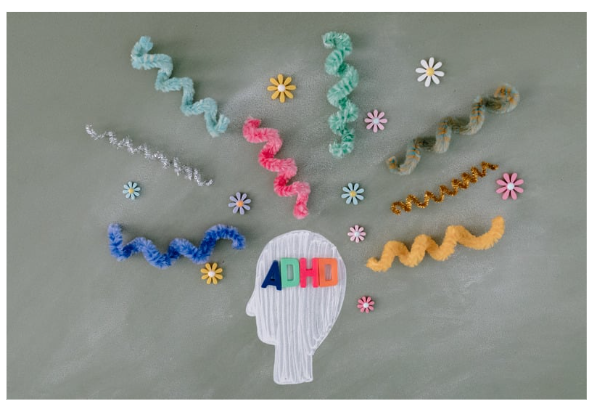
Support & Education for ADHD
Living with ADHD can feel like your brain is constantly in motion. You might have bursts of creativity and curiosity, but also struggle with following through with your thoughts, staying organized, or managing emotions. Sometimes, the outside world doesn’t quite understand what it’s like to live in your head, which can leave you feeling frustrated, misunderstood, or even ashamed.
If any of this sounds familiar, take a breath. You’re not “just” forgetful, broken, or failing. You are human and viewing the word from a neurodivergent lens. And you are not alone.
ADHD, or Attention-Deficit/Hyperactivity Disorder, is a neurodevelopmental condition that affects how people focus, manage time, regulate emotions, and navigate everyday tasks. It’s not a character flaw or a result of poor effort; it is a different way of processing and responding to the world.
What ADHD Characteristics Can Look Like:
ADHD shows up differently for everyone, and it often changes with age.
For some, it might look like chronic forgetfulness, difficulty starting or completing tasks, or zoning out during conversations. For others, it might look like constant movement, impulsive decisions, or strong emotional reactions that feel hard to manage. Many people experience a combination of these traits.

Common experiences include:
- Feeling overwhelmed by tasks that seem simple to others
- Struggling to stay focused or remember important details
- Losing track of time or constantly running late
- Having intense emotions that come on quickly and feel hard to regulate
- Getting stuck in “all or nothing” patterns
- Difficulty relaxing, even when you’re exhausted
These challenges can impact work, school, relationships, and your sense of self. It is important to remember they don’t define your worth. Therapy can help you reconnect with your strengths and build tools to support your daily life.

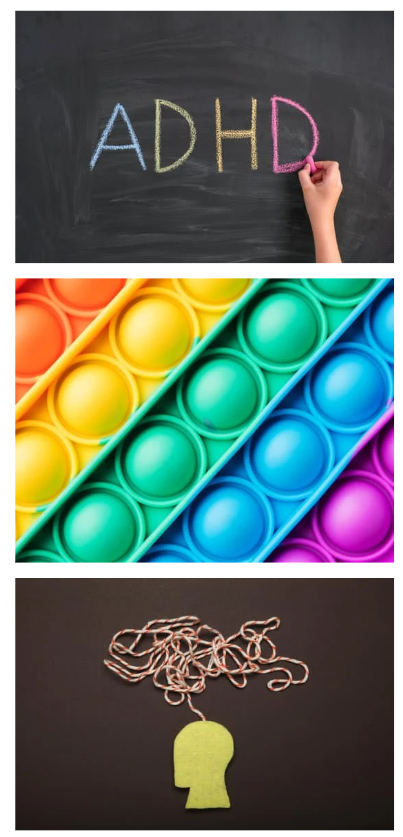
FAQs about ADHD and Therapy:
– Is ADHD only diagnosed in kids?
No. ADHD can be a lifelong neurodevelopmental condition, and many people are first diagnosed in adulthood. Symptoms might look different across the lifespan, but ADHD doesn’t “go away” with age but it often changes shape and shows up differently over time.
– Can someone have ADHD if they don’t seem hyperactive?
Yes. Many people with ADHD don’t appear outwardly hyper. The inattentive presentation of ADHD often includes daydreaming, forgetfulness, trouble following through, or mental restlessness rather than physical energy.
– What if I was told I don’t “seem” like I have ADHD?
Unfortunately, ADHD is often misunderstood or missed. This is more common in females, people of color, and those with high coping skills or internalized symptoms (ones hidden from others). Your lived experience matters, and therapy can help clarify patterns and explore whether ADHD might be part of your story.
– Is therapy helpful even if I already take medication for ADHD?
Absolutely. Medication can support focus and regulation, but therapy helps with building systems, understanding yourself, addressing emotional challenges, and creating meaningful, lasting change in your life.
– Do you work with both kids and adults with ADHD?
Yes. We support individuals across the lifespan. Whether you’re a teen figuring things out, an adult navigating work and relationships, or a parent seeking tools and understanding for your child. We have many clinicians with the training and skills to offer support.
– What’s the next step if I think I have ADHD or want support?
You don’t need to have everything figured out before reaching out. If you’re curious about therapy or wondering whether ADHD is part of your experience, we invite you to schedule a free consultation or inquire here. For more information see our links below.

Reframing ADHD with Compassion & Curiosity
Yes, ADHD can be frustrating. But it can also come with powerful gifts.
People with ADHD often describe themselves as highly creative, intuitive, energetic, and compassionate. You might be someone who can think outside the box, spot connections others miss, or bring unique enthusiasm to what you care about. These aren’t things to fix, they are strengths to work with and to nurture.
How Therapy Can Help
In therapy, we take a collaborative, strengths-based approach. That means we don’t just look at what’s hard; we also focus on what’s working, what’s meaningful to you, and how to make space for more ease and joy in your life.
Whether you’re a teen, adult, or a parent of a child with ADHD, therapy offers a safe, nonjudgmental space to explore what ADHD looks like in your life.
Together, we can:
- Make sense of your experiences and how ADHD affects you
- Help you define, understand, and normalize ADHD
- Identify tools for organization, time management, and task completion
- Develop strategies to manage overwhelm and reduce shame
- Build emotional regulation skills and support nervous system balance
- Explore the impact of ADHD on identity, relationships, parenting, or work
- Find systems and routines that actually work for you—not just what works for everyone else
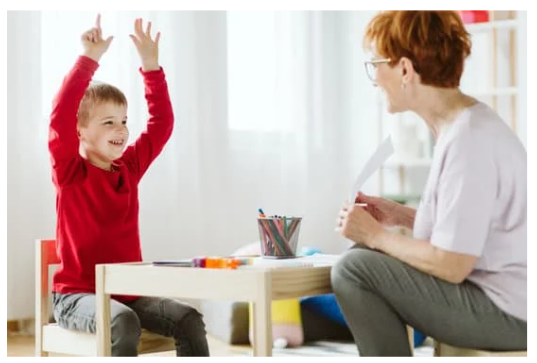
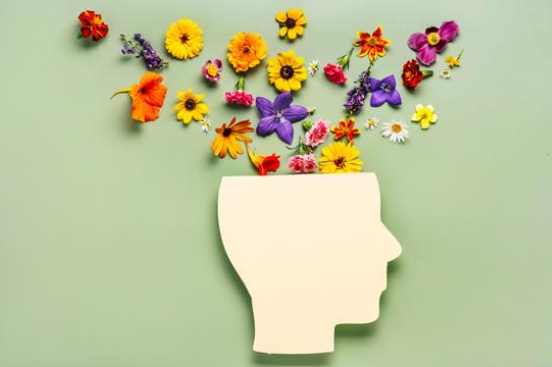
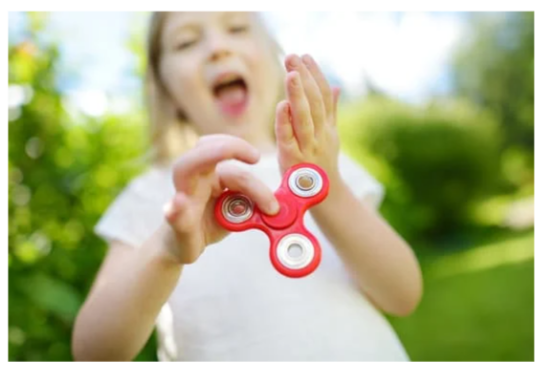
ADHD Resources You Can Trust
Whether you’re just starting to learn about ADHD or looking to deepen your understanding, these trusted resources offer reliable, science-backed information. Click below to explore tools, guides, and support communities designed for individuals and families navigating ADHD:
- CHADD (Children and Adults with Attention-Deficit/Hyperactivity Disorder) – A national nonprofit organization offering information, local support groups, webinars, and advocacy for children and adults with ADHD.
- ADDA (Attention Deficit Disorder Association) – A go-to resource for adults with ADHD, featuring expert-led webinars, virtual peer support, and strategies tailored to adult life.
- The National Institute of Mental Health (NIMH) – ADHD Overview – Clear, science-based information about symptoms, diagnosis, and treatment options for ADHD from the leading federal research agency on mental health.
- The World Federation of ADHD – International Consensus Statement – Global research, treatment guidelines, and advocacy for ADHD across the lifespan. Great for clinicians and individuals who want in-depth, evidence-based information.
- Understood.org – For Families and Educators – An inclusive and practical site supporting parents, kids, and teachers with ADHD-friendly tools, learning strategies, and school-based supports.